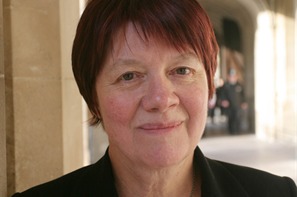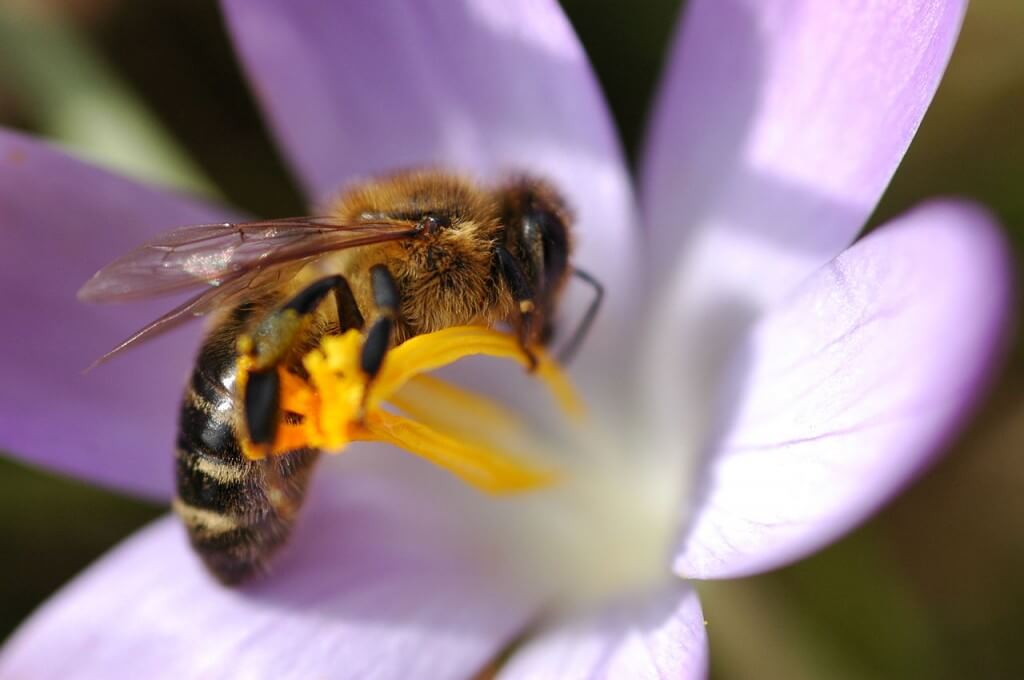
As MPs return to parliament from party conference season, leading MP Joan Walley, says the Government’s plans for bees ‘fail to offer’ the solution bees need.
The decline in bee and other pollinators’ populations is a very real threat not just to the pollinators themselves but also to the world food system upon which we heavily rely.
Without the services pollinators provide food prices will rise, crops will fail and entire eco systems may face collapse.
As Chair of the Environmental Audit Select Committee (EAC) I have been at the forefront of efforts to press the Government to act.
In April 2013 we published a report into Pollinators and Pesticides which called on the Government to apply the precautionary principle and introduce a moratorium on pesticides linked to bee decline.
Following our report the Government published a draft National Pollinator Strategy (NPS), outlining the Government’s proposals to arrest the decline in bees and other pollinators.
While elements of the draft were promising, particularly in terms of mobilising and informing the public, it attracted criticism from many groups, including Friends of the Earth, which feels that its terms need to be much stronger.
In July 2014 the Environmental Audit Committee decided to hold a follow up inquiry examining the draft NPS which resulted in us too calling for a more robust strategy.
Our report set out areas of the draft NPS that need to be reinforced and restructured, including: the use of EU funding, guidance on pesticide use and pest management, and further research into the impact of pesticides on pollinators.
The EAC also called on the Government to firmly commit to the EU-wide ban on pesticides known to be harmful to pollinators, and to show clearly that they will not seek to overturn it.
Given the extent of the problem we face, globally and domestically, I believe that the Government’s plans fail to offer the long-term solution needed.
A clearly-defined, proactive and cross-cutting framework is required. One which will set a course to be followed by producers, the public and politicians to ensure that the necessary action is taken at all levels.
We cannot hope to overcome this huge challenge by working in silos. Everyone recognises the problem, if to varying degrees, and so all sectors, departments, campaigners and growers need to work together to solve it.
This means ensuring that environmental, food, health and planning policies are linked to the NPS, learning from the inter-departmental approach shown by the USA’s Pollinator Health Task Force, established by President Obama in June 2014.
It means campaign groups continuing their vital work in pushing politicians to recognise the severity of the issue and by shining a light on the industries involved.
It means working with farmers to support and incentivise them to adopt pollinator-friendly practices, mitigating the cost of this and concentrating on the long-term cost of short-term savings.
We cannot afford long-standing concerns about the potential economic cost of cutting pesticide use to override. The cost of protecting bees and pollinators will be far outweighed, environmentally and economically, by the cost of failing to protect them.
Professor Simon Potts of Reading University has calculated that the value of direct pollination to UK agriculture is currently £603 million a year. This would rise to £1.8 billion if the cost of artificial pollination, which would be required if pollinator populations continue to decline, is factored in.
Ultimately, the draft National Pollinator Strategy as presented in March is nowhere near enough. It needs to be stronger in its intent and in its proposed implementation if we are to preserve pollinators in the UK. It needs to be in tune with a wider commitment to value and protect our biodiversity.
As MPs return to Parliament from the party conference season, it is vital to maintain pressure on the Coalition government and individual MPs to step up to the challenge to protect our bees by agreeing a national strategy that is fit for purpose.
Joan Walley MP
Stoke on Trent
Chair of the House of Commons Environmental Audit Committee

The Government’s response to the EAC’s second report on the draft National Pollinator Strategy was published yesterday – http://www.publications.parliament.uk/pa/cm201415/cmselect/cmenvaud/698/69804.htm
Huge deeply scientific political subject that affects affordable food production and biodiversity. This is not just about bees – it’s about all pollinators such as flies and moths.
This restatement gives a sound overview – the appendices are ‘mindblowing’. (Honey bees can extrude contaminants and some have even found traces of neonics ‘help’ bees resist fungal attack!) http://rspb.royalsocietypublishing.org/content/281/1786/20140558.abstract
and this will terrify you.
http://onlinelibrary.wiley.com/doi/10.1002/ps.3836/full
However, the dose not the detection, is the issue. Benzene, found within unleaded petrol, is a genotoxic carcinogen and so no absolutely safe level can be specified for it. In order to grow food today at a price most of us can afford, we must keep pests and disease at bay. Neonics, as indeed all insecticides, are toxic to invertebrates. That’s their job. However, they may be more persistent than we thought and so alternatives must be found to prevent us turning back to using older insecticides that may affect an even wider range of insects (especially when the pest ones are becoming resistant).
Beekeepers are terrified as to the alternatives (as they probably are of the miticide pesticides they have to use to keep varroa mite in check in their hives).
Making a strategy ‘fit for purpose’ is a tall order and way beyond any 38 Degree stroke of the laptop key.
For my part, I’m looking at the big one. More habitat refuges. Many more. Look out on farmingfutures.org.uk
@blackgull
And this very sound looking ‘National Pollinator Strategy Briefing for MPs’ just released today by the Bee Coalition http://www.ejfoundation.org/bees/NPSbriefingforMPs#.VD-XOdJ0zIU
You have to despair at the lack of urgency given to the decline of our wildlife in particular our pollinators. They are not only responsible for most of our food crops but being bottom of the food chain are vital to all life on our planet. I really wish we could see the importance of the planets future instead of just present days financial gains. The planet will survive in one form or another, we will NOT.
Quite – we have borrowed the planet from our grandchildren, and are destroying it as fast as possible. Talk about have it today & sod the consequence, money, power, selfish greed!
Like you I am pessimistic about the future!
“not just about bees – it’s about all pollinators”
It’s about all invertebrates and their place in the Big Scheme of Things. Whereas a crop needing insect pollination may appear in 1 in 3 years in a typical arable rotation, neonics may also be used in seed treatments for self-pollinating cereals in the other 2 years. While the crops are rotated, the neonic burden in soil is, potentially, not.
Problem is the scale of simplification within our landscape. Great areas of monoculture that favour tiny numbers of species, and it just leads to imbalance. A simplified ecosystem in which individual components become pests that have to be dealt with by prophylactic means.
We have to create more space for nature within our agricultural landscapes and reduce reliance on agrochemicals.